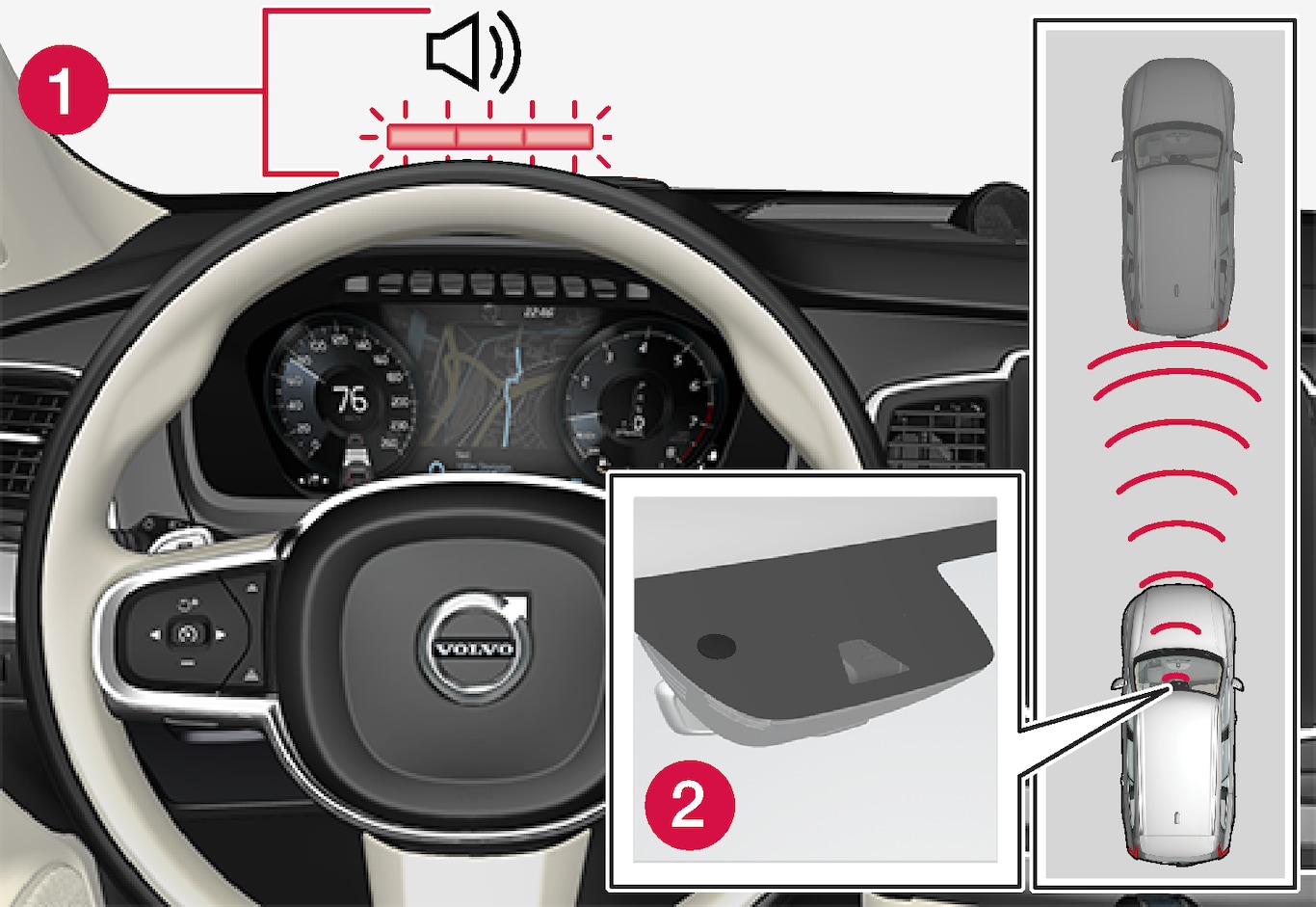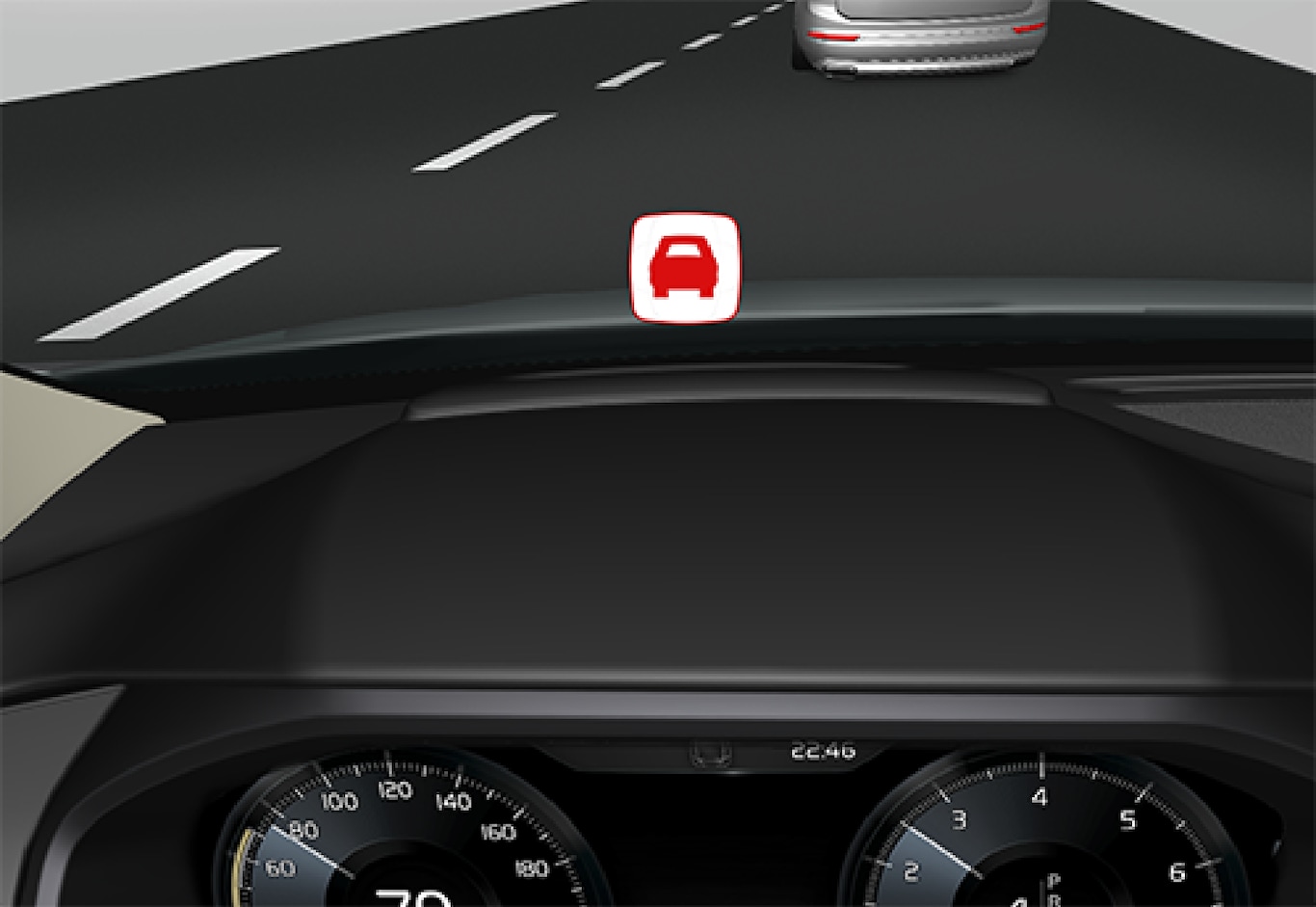If the speed difference is greater than the following specified speeds, the City Safety auto-brake function cannot prevent a collision but mitigates the consequences of it.
Vehicles
For a vehicle in front, City Safety can reduce the speed by up to 60 km/h (37 mph).
cyclists
For a cyclist, City Safety can reduce the speed by up to 50 km/h (30 mph).
Pedestrians
For a pedestrian, City Safety can reduce speed by up to 45 km/h (28 mph).
Large animals
In the event of a risk of a collision with a large animal, City Safety can reduce the car's speed by up to 15 km/h (9 mph).
The brake function for large animals is primarily intended to reduce the force of the impact at higher speeds and is most effective at speeds above 70 km/h (43 mph) but less effective at lower speed.
Subfunctions for City Safety

 Audio-visual warning signal in the event of a collision risk
Audio-visual warning signal in the event of a collision risk Distance measurement with the camera and radar unit
Distance measurement with the camera and radar unit
- Collision warning
- Brake support
- Auto Brake
The following text explains what happens during the three steps:
1 - Collision warning
The driver is first warned of a potentially imminent collision.
In cars equipped with a head up display*, the warning is shown on the windscreen by a flashing symbol.

Note
City Safety can detect pedestrians, cyclists or vehicles that are stationary or moving in the same direction as the car and are ahead. City Safety can also detect pedestrians, cyclists or large animals that are crossing the road in front of the car.
In the event of a risk of collision with a pedestrian, larger animal, cyclist or vehicle (including vehicles described in the "City Safety in cross traffic" section), the driver's attention is alerted by means of a visual, acoustic and brake pulse warning. There is no brake pulse warning at lower speeds, sudden driver braking or acceleration. The brake pulse frequency varies according to the car's speed.
2 - Brake support
If the risk of collision has increased further after the collision warning then the brake support is activated.
Brake support reinforces the driver’s braking action if the system considers that the braking is not sufficient to avoid a collision.
3 - Auto Brake
The automatic brake function is activated last.
If in this situation the driver has not yet started to take evasive action and the risk of collision is imminent then the automatic braking function is deployed - this takes place irrespective of whether or not the driver brakes. Braking then takes place with full brake force in order to reduce collision speed, or with limited brake force if it is sufficient to avoid a collision.
In connection with automatic braking the seatbelt tensioner may also be activated. For more information see the "Seatbelt tensioner" section.
In some situations, the action of Auto-brake may begin with light braking and then progress to full brake action.
When City Safety has prevented a collision with a stationary object, the car remains stationary in anticipation of positive action by the driver. If the car has been braked to avoid collision with a slower vehicle in front, its speed is reduced to match that of the vehicle in front.
Note
The driver can always interrupt a braking intervention by firmly depressing the accelerator pedal.
Note
When City Safety is activated and brakes the vehicle, the driver display shows a text message to the effect that the function is/has been active.